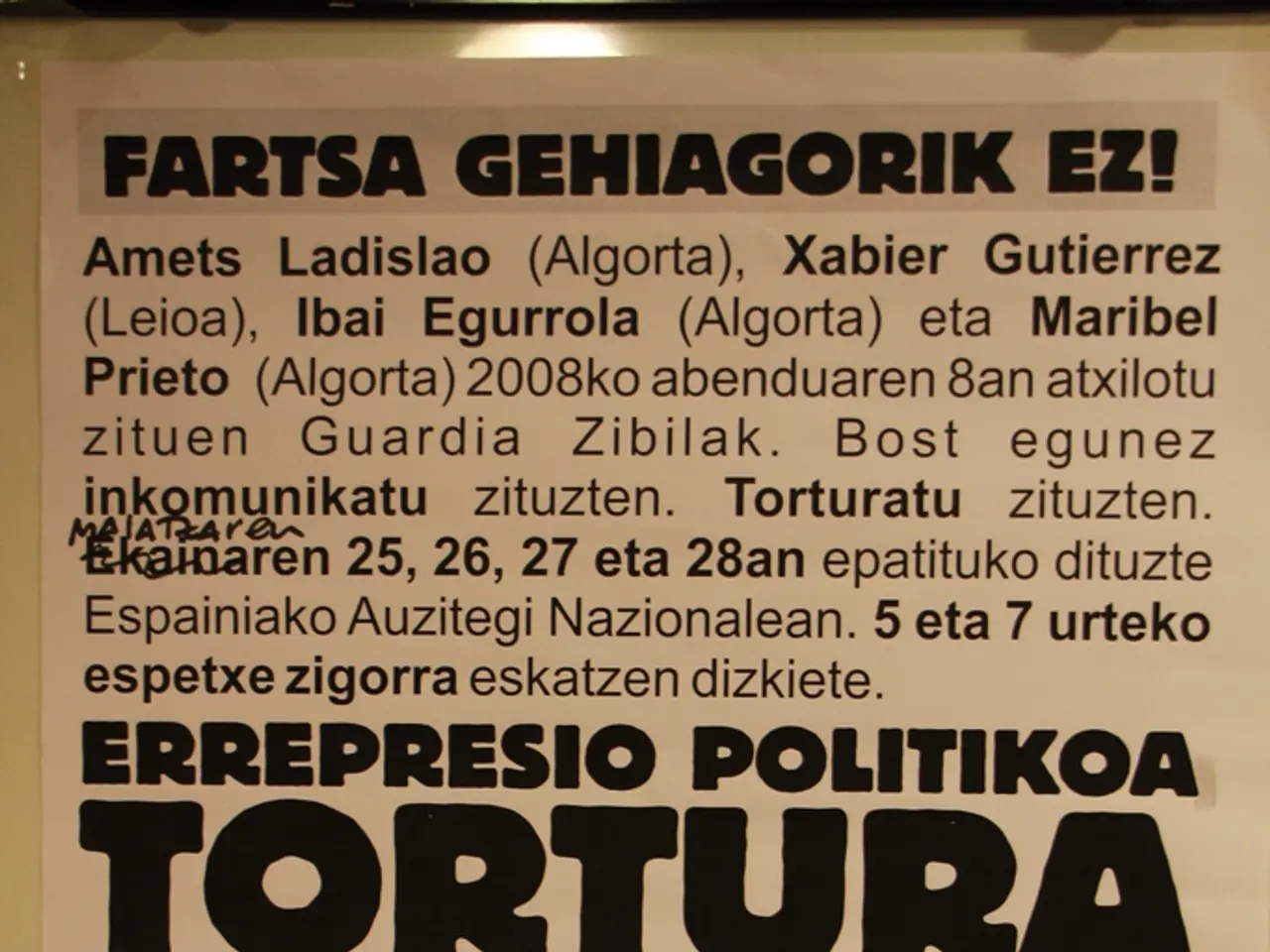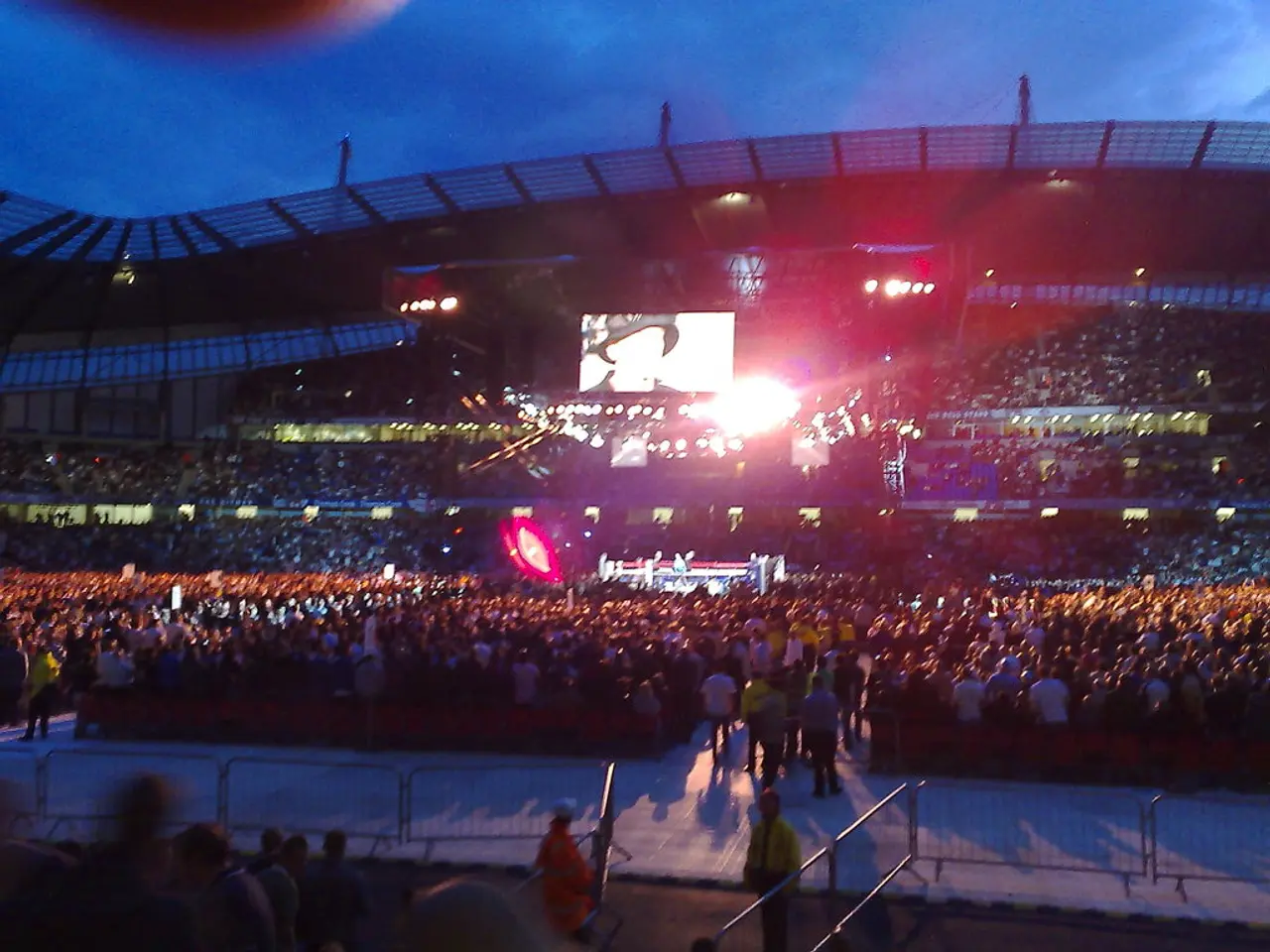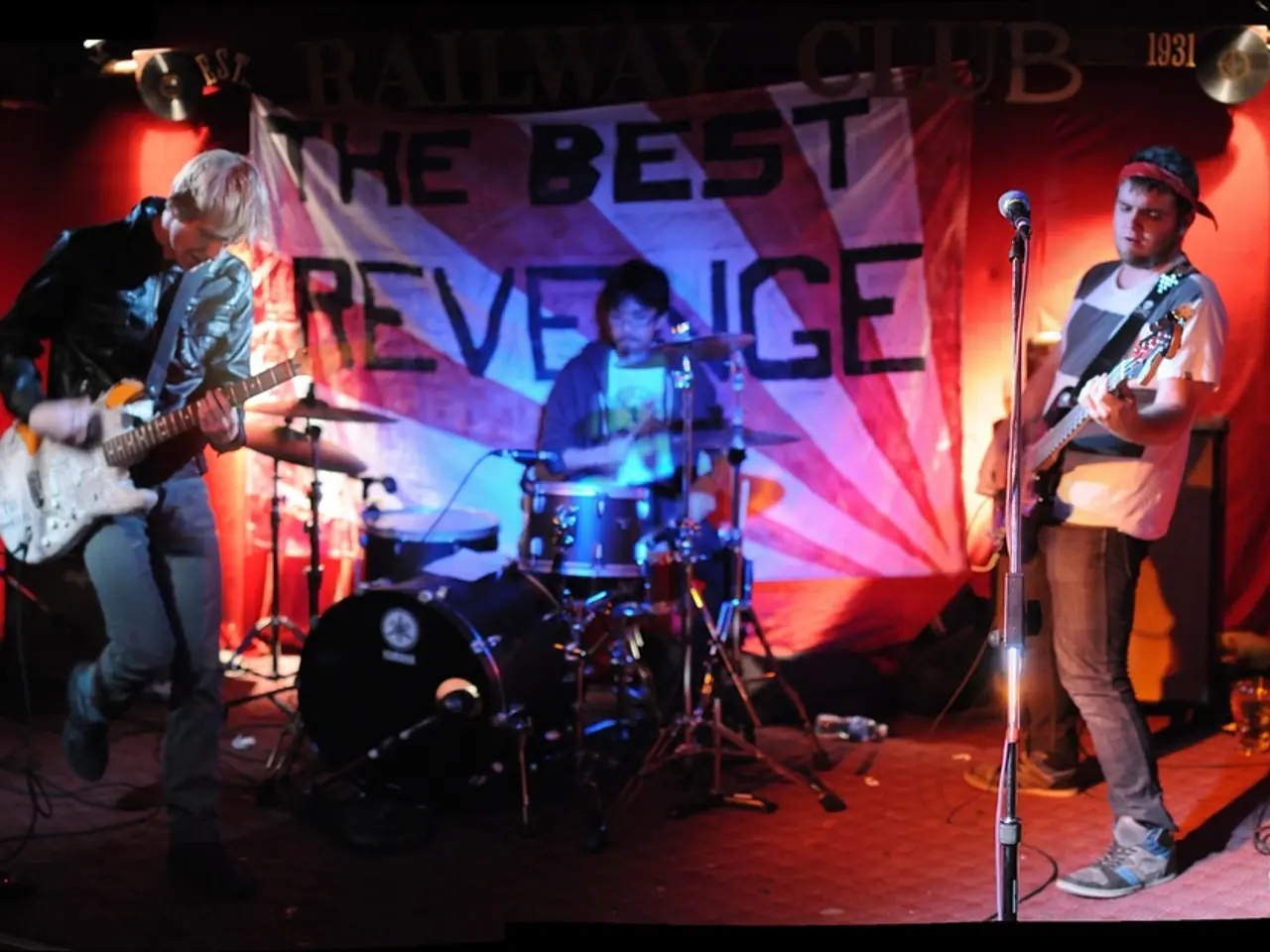Immigrant arrests in Louisiana continue to be halted by the court's ruling
In a significant ruling, the US Court of Appeals for the Ninth Circuit has upheld temporary restrictions on immigration arrests in Los Angeles and surrounding counties. The court's decision, which came in response to a lawsuit filed by the American Civil Liberties Union (ACLU) and several Southern California municipalities, bars US government agents from making immigration-related arrests without probable cause[1][2][3][5].
The court's decision specifically prohibits Immigration and Customs Enforcement (ICE) and related agencies from stopping individuals solely based on their appearance, language, location, or occupation. It also ordered the Department of Homeland Security to provide detainees with legal counsel access at a downtown Los Angeles detention site[3].
These judicial interventions were necessitated by concerns over indiscriminate raids that had caused widespread fear and protests in the Latino community. The raids, led by the Trump administration, were criticised for their broad deportation efforts and the use of Customs and Border Protection agents far from the border[1][2].
The Trump administration, which has been leading these aggressive immigration enforcement efforts, views these rulings as obstacles and has signalled its intent to challenge them further, possibly through the Supreme Court[1][2]. In June, President Donald Trump called National Guard troops and US Marines into Los Angeles in response to protests against the immigration raids, marking an extraordinary use of military force to support civilian police operations within the United States[4].
Despite the administration's efforts, many of the ICE raids that provoked massive protests earlier in 2025 have slowed due to these legal constraints. However, some enforcement continues under existing rules[4].
The plaintiffs in the lawsuit are likely to be able to prove that federal agents carried out arrests based on appearance, language, and where they lived or worked. The lawsuit accuses federal agents of using unlawful police tactics such as racial profiling[1].
In summary, the current status is that judicial orders are in place limiting immigration enforcement arrests in Los Angeles based on appearance, language, or location, with the appeals court supporting these limits, while the Trump administration seeks to overturn or narrow them through further appeals.
[1] Los Angeles Times, "Ninth Circuit upholds temporary restraining order on immigration arrests in Los Angeles", August 7, 2025. [2] The New York Times, "Court Upholds Restraint on Immigration Arrests in Los Angeles", August 7, 2025. [3] ACLU, "Ninth Circuit Upholds Temporary Restraining Order on ICE Arrests in Los Angeles", August 7, 2025. [4] Associated Press, "ICE Raids Slow in Los Angeles After Court Ruling", August 10, 2025. [5] CNN, "Trump administration loses appeal to overturn immigration arrest restrictions", August 7, 2025.
- The court's ruling has barred Immigration and Customs Enforcement (ICE) and related agencies from stopping individuals based on their appearance, language, location, or occupation, raising questions about the administration's immigration policy and legislation in war-and-conflicts and politics.
- The Trump administration, amidst general news of widespread protests against immigration raids, has signaled its intention to challenge the court's decision, potentially through policy-and-legislation and lawsuits, as the administration views the restrictions as an obstacle to its aggressive immigration enforcement efforts.
- The ongoing legal battle between the American Civil Liberties Union (ACLU), Southern California municipalities, and the Trump administration highlights the politically charged nature of immigration issues in the United States, and the role of the military, particularly the National Guard and US Marines, in conducting civilian operations, a matter that warrants close scrutiny in the realm of war-and-conflicts and politics.






